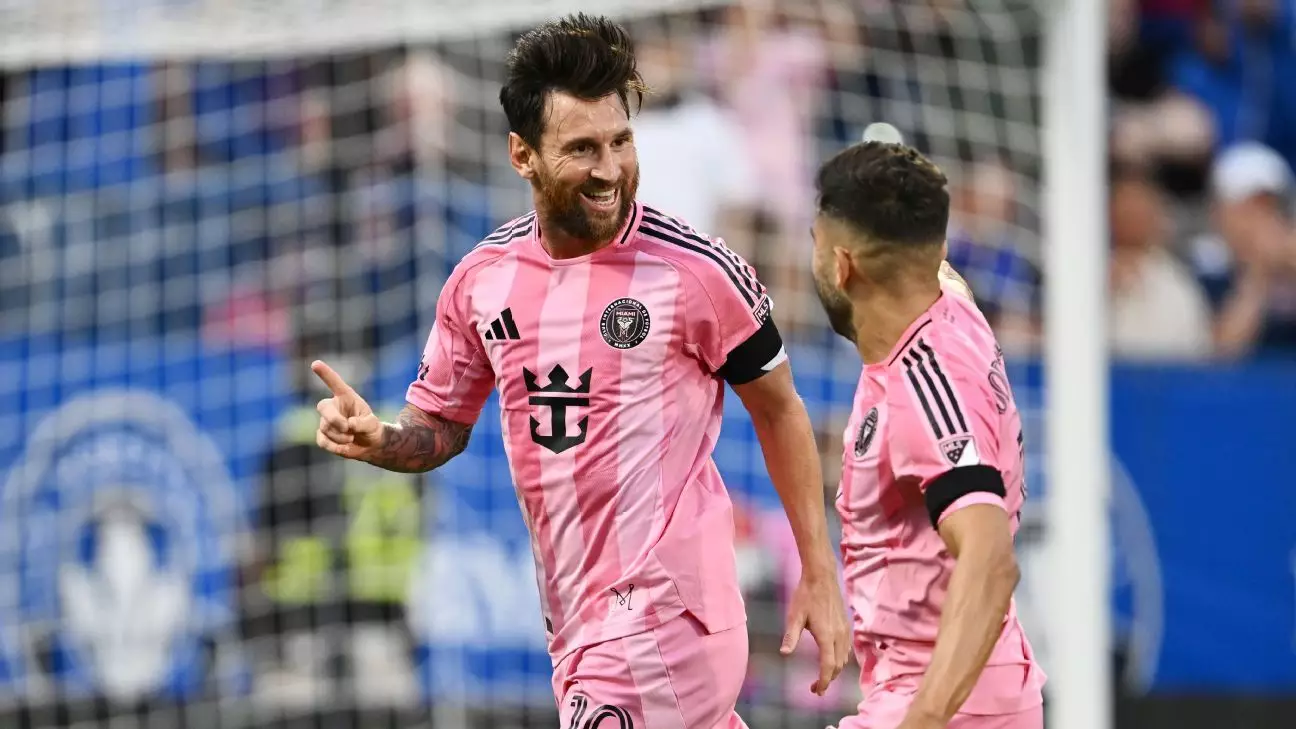In recent times, the landscape of professional soccer has shifted dramatically, often at the expense of core principles like athlete well-being and fair competition. The controversy surrounding Lionel Messi and Jordi Alba’s suspension from Inter Miami’s recent MLS match highlights a broader issue: the sport’s obsession with spectacle and promotional events is increasingly clashing with the fundamental need to protect players from overexertion. While the allure of All-Star games generates excitement and media buzz, it raises critical questions about whether these showcases are justified when players are fatigued or at risk of injury.
The decision by Major League Soccer to suspend Messi and Alba for skipping the All-Star Game underscores the league’s rigid stance on participation. However, blanket rules that penalize players for opting out—especially when those reasons are rooted in fatigue or minor injuries—fail to acknowledge the nuanced realities of elite athletes. These players are not mere performers; they are highly trained professionals whose bodies require care and strategic management. Prioritizing entertainment over health not only jeopardizes individual careers but also undermines the long-term integrity of the league.
The Unintended Consequences of Scheduling and Overexertion
Javier Mascherano’s candid remarks shed light on the flawed scheduling practices that contribute to player fatigue and conflicts of interest. He pointed out that the All-Star Game is often scheduled between congested tournament runs and intense league fixtures. This timing is inherently problematic, as it leaves players exhausted and vulnerable to injury, thereby diminishing the quality of their performances and risking their longevity.
Mascherano’s critique is compelling; the notion that all-star events should be harmonized with the players’ physical capacity should be a universal priority. Yet, the current obsession with marketing opportunities often trumps athlete welfare. Scheduling these events to maximize fan engagement while ignoring players’ health is a shortsighted approach rooted in spectacle-driven economic motives rather than sustainable sport management.
Furthermore, the league’s decision to suspend Messi and Alba—despite their fan-driven selection and established importance—sends a discouraging message. It implies that individual athlete well-being is secondary to maintaining the league’s curated image. This stance sets a dangerous precedent: players may feel compelled to participate even when their bodies signal they shouldn’t, risking serious injury or burnout.
The Player-Centric Approach: Rethinking the Future of the MLS
The narrative that professional players are mere commodities that must accept grueling schedules for the entertainment of spectators is both outdated and harmful. It’s time for MLS and similar leagues to take a step back and recalibrate their priorities. The health and rest of athletes are the foundation for sustainable growth and global competitiveness.
Javier Mascherano’s observations underscore the urgent need for policy reevaluation. Protecting players from overexertion should not be viewed as a hindrance but as essential to fostering a more resilient and reputable league. The league and its organizers must recognize that orchestrated events like All-Star games should be secondary to ensuring that players are mentally and physically prepared to perform at their best.
The league’s rigid stance on sanctions may be politically expedient, but it ultimately sacrifices authenticity and long-term trust. Teams should be empowered to prioritize their players’ health without facing punitive measures. This policy shift could also strengthen fan loyalty by aligning MLS more closely with the values of integrity and respect for athletes.
The ongoing discussion surrounding Messi and Alba should serve as a wake-up call. The future of MLS hinges on its willingness to balance spectacle with sustainability, putting player welfare at the forefront of its operational philosophy. Only by doing so can the league aspire to grow into a truly world-class competition, appreciated not only for thrilling matches but also for its exemplification of responsible sport management.


Leave a Reply